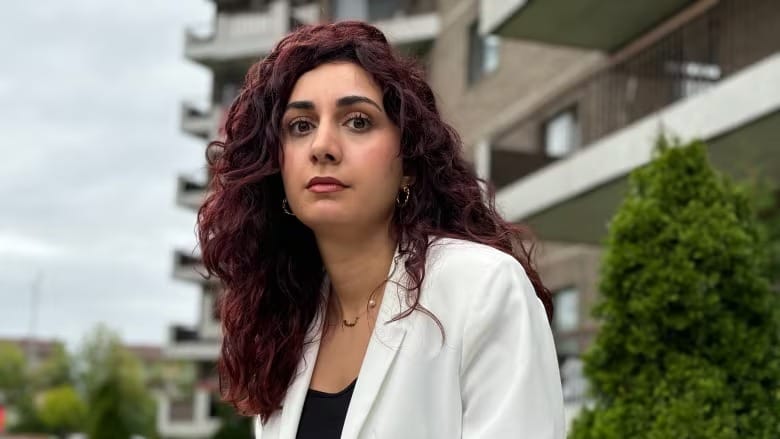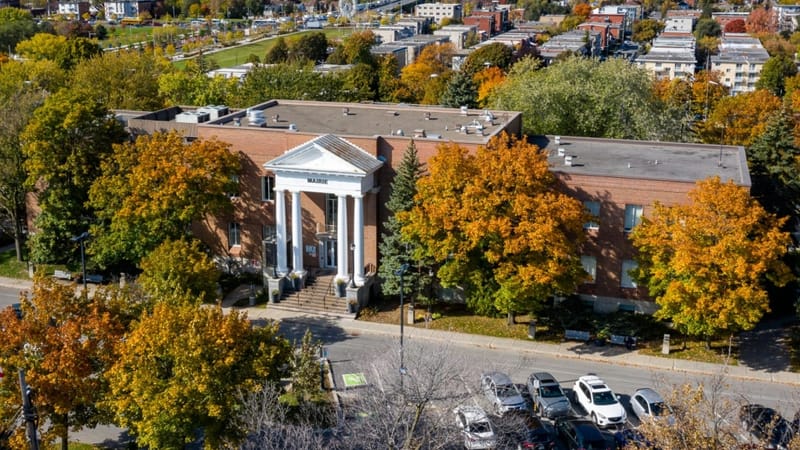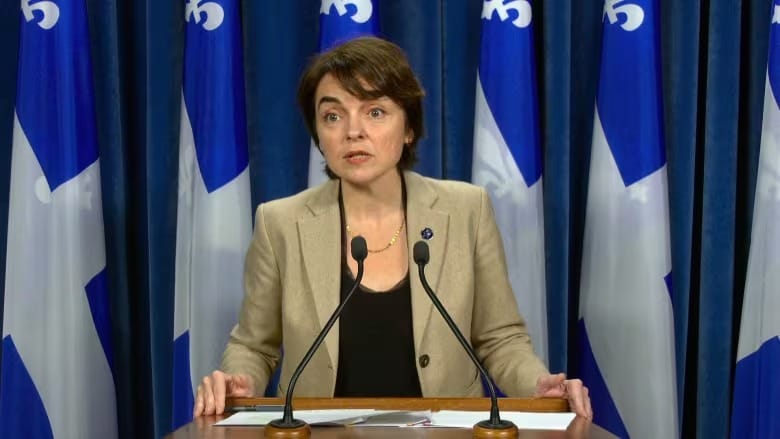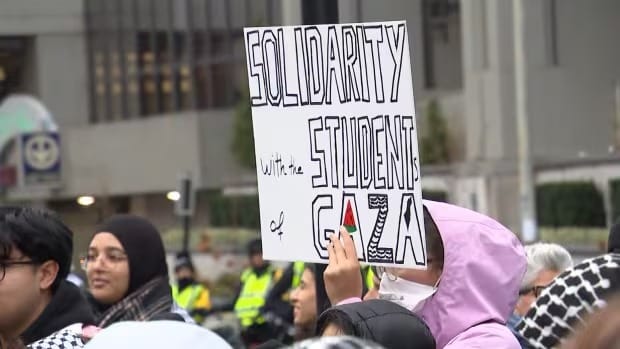As conflict intensifies, Quebecers with family in Lebanon worry about loved ones
'We are scared to go to sleep at night,' says Nassam Charara, who fears for her friends and family

Sitting outside her Montreal apartment, Nassam Charara shares that the past few weeks have become increasingly stressful.
A Canadian citizen who grew up in Lebanon, Charara moved to Canada four years ago for her studies.
"We’re scared to go to sleep at night because we fear waking up to news that a family member has died, or that our house back home has been destroyed, or that neighbors have been killed," she said.
Charara has been regularly checking in on friends and family in Lebanon, including her parents, who have evacuated their home and are now staying in Beirut.
"Everyone is trying their best to maintain some level of stability while staying as safe as they can," she added.
The Canadian government has advised its citizens in Lebanon to leave and has cautioned against travel to the area as the conflict between Israel and Hezbollah intensifies.
"We need the war to end, the war in Gaza and at the Lebanon-Israel border," said Mélanie Joly, Canada’s minister of foreign affairs. "We need a ceasefire in Gaza, the release of hostages, and a ceasefire at the Lebanon-Israel border."
Late Tuesday, Global Affairs Canada confirmed the deaths of two Canadian citizens, though details about the timing were not immediately available.
Israel’s Continued Strikes on Lebanon
Meanwhile, Israel’s Prime Minister, Benjamin Netanyahu, has shown no signs of slowing the offensive. On Tuesday, Netanyahu vowed to continue targeting Hezbollah, urging Lebanese civilians to free themselves from the group’s control.
"Our war is not with you. Our war is with Hezbollah," Netanyahu said from an undisclosed army base, after Israel’s military confirmed the airstrike that killed Ibrahim Kobeisi, Hezbollah’s alleged missile and rocket commander, in Beirut.
Israel has accused Hezbollah of hiding weapons in residential areas across Lebanon, accusations that Hezbollah denies.
The Lebanese Health Ministry reported that at least six people were killed, and 15 others injured, in Tuesday's strike on a building in Beirut's Ghobeiry neighborhood. The ministry also confirmed that Monday’s strikes had killed 558 people, including 50 children and 94 women, with 1,835 wounded.
After nearly a year of conflict with Hamas in Gaza along its southern border, Israel has begun shifting its focus to the northern front, where Hezbollah continues to fire rockets into Israel in support of Hamas.
Watching the Conflict from Montreal
In Montreal, residents with ties to Lebanon are anxiously watching the situation unfold.
Joe Abou-Malhab, who recently returned to Quebec after attending his sister’s wedding in Beirut, described a much tenser atmosphere in Lebanon than usual.
"People are scared, people are worried, everyone is waiting for the moment when it all breaks loose," he said.
Abou-Malhab said that during his month-long stay in Lebanon, there were explosions that led to panic and hospitals overwhelmed with victims. Last week, after explosive devices hidden in pagers and walkie-talkies went off, people grew even more fearful of being in public or near others, uncertain of who might be carrying such devices.
Rita Wakim Hage, another Montreal resident, moved to Canada with her daughter in 2021 after losing three family members to COVID-19. She hoped for a safer life, but her husband and young son remain in Lebanon, and she is eager for them to join her in Canada. Her brother and two sisters are also still there.
"I am very worried about them," she said. "It's dangerous in Beirut with the airstrikes happening constantly for two days. It’s an ongoing conflict, and the situation is critical."
Hage feels overwhelmed by stress, panic, and anxiety, but her only options are to pray and keep in touch with her family for updates on their safety.
While conflict in Lebanon is not new, the current situation feels like it could escalate further, said Hage, who grew up during Lebanon’s civil war. She longs for a resolution and peace.
"I don’t want my children to live through war," she said, adding that her family fears things will only worsen. "It’s not good."





